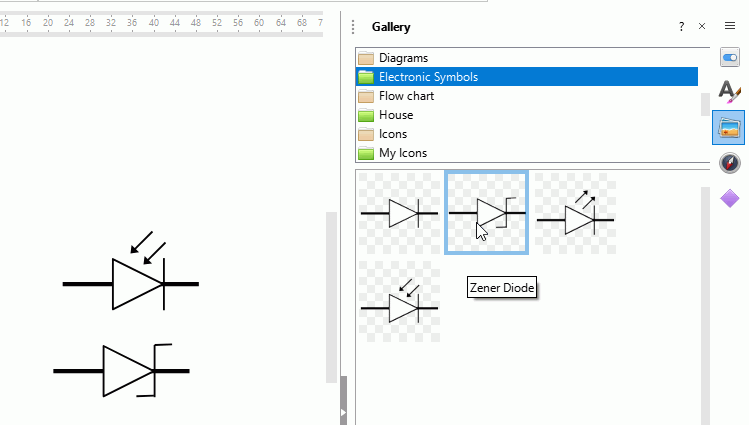It’s unclear what you do to insert that triangle. But looking at the “Arrow.odt” from #5 from @andydoane, I believe that the problem - at least there - is not specifying the font for the character explicitly. That file has ODF markup like
<text:p text:style-name="P1">â–¶ </text:p>
(I hope that it would show “correctly” as UTF-8 shown as Windows-1252; the actual bytes there are E2 96 B6). The important part here is the (auto)style, which is defined as
<style:style style:name="P1" style:family="paragraph" style:parent-style-name="Standard">
<style:text-properties officeooo:rsid="00129873" officeooo:paragraph-rsid="00129873"/>
</style:style>
and which doesn’t itself define any formatting, but refers to Standard:
<style:style style:name="Standard" style:family="paragraph" style:class="text"/>
… and finally, the default paragraph style is
<style:default-style style:family="paragraph">
<style:paragraph-properties fo:orphans="2" fo:widows="2" fo:hyphenation-ladder-count="no-limit" style:text-autospace="ideograph-alpha" style:punctuation-wrap="hanging" style:line-break="strict" style:tab-stop-distance="0.4925in" style:writing-mode="page"/>
<style:text-properties style:use-window-font-color="true" loext:opacity="0%" style:font-name="Liberation Serif" fo:font-size="12pt" fo:language="en" fo:country="US" style:letter-kerning="true" style:font-name-asian="Noto Serif CJK SC" style:font-size-asian="10.5pt" style:language-asian="zh" style:country-asian="CN" style:font-name-complex="Lohit Devanagari1" style:font-size-complex="12pt" style:language-complex="hi" style:country-complex="IN" fo:hyphenate="false" fo:hyphenation-remain-char-count="2" fo:hyphenation-push-char-count="2" loext:hyphenation-no-caps="false"/>
</style:default-style>
All in all, it tells to use Liberation Serif; but that font doesn’t include the necessary glyph - so a font fallback mechanism triggers. And that necessarily depends on installed fonts - so naturally is system-specific. On one system, it may choose, say, OpenSymbol (which has the glyph, with the wanted shape); and on another, some different font with the glyph (where it’s colored) may get selected.
If you inserted the glyph using our Insert → Special Character, it would specify the font explicitly (which some consider problematic - see tdf#139359; but which is obviously wanted in cases like this); but if you used Alt+X Unicode insertion; or if you copied the symbol somewhere, and paster as plain text - those methods of course have no associated font information.
In general: my proposed solution would be - use Insert → Special Character, and choose OpenSymbol for the BLACK RIGHT-POINTING TRIANGLE.



 .
. 
